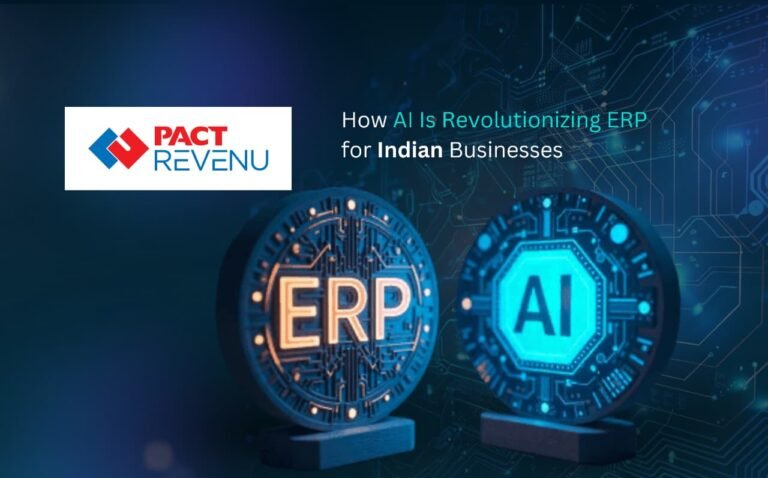The Ultimate Guide to Different Types of ERP Systems
Introduction
Selecting a correct ERP (Enterprise Resource Planning) system for your business in India can be daunting with so many to choose from. If you run a family business in Jaipur, a budding startup in Bengaluru, or an industrial-scale manufacturing firm in Pune, learning about ERP systems is the answer to propel your business forward.
ERP isn't software; it's about streamlining your business, making you better at making decisions, and giving your team more time to do what they do best. In this guide, we demystify ERP types, what to consider, and how to choose the right one for your specific case.
What is ERP and Why Does It Matter in India?
An ERP system is one piece of software that consolidates all of your business processes, finance, inventory, HR, and sales under one roof. For Indian firms, this translates to
- Improved Efficiency: Remove repetitive tasks and minimize human errors.
- Centralized Data: Your entire business data is in one location, and GST reporting and compliance are a breeze.
- Better Decision-Making: Real-time analysis allows you to react fast in India’s competitive marketplace.
- Scalability: Your ERP expands along with your business, whether you are expanding to more stores or introducing new products.
Example: An exporter of textiles in Surat can utilize ERP to monitor inventory, handle GST returns, and streamline supply chains, all in a single dashboard.
Types of ERP Systems By Deployment
1. On-Premises ERP
- Hosted on: Your own servers
- Pros: More control and customization
- Cons: More expensive to implement initially and requires a dedicated IT staff
- Best for: Large businesses or those with tight data controls (e.g., car giants or pharma)
2. Cloud-Based ERP
- Hosted on: The web (accessible anywhere)
- Pros: Reduced up-front cost, subscription-based
- Cons: Auto updates
- Best for: SMEs, startups, and businesses with multiple locations
3. Hybrid ERP
- Structure: Hybrid of on-premises and cloud
- Pros: Adaptable for companies transitioning to the cloud
- Cons: Can be difficult to control
Best suited for:
Businesses that desire cloud advantages but require some data on-premises Industries Firms that wish to diversify.
Industry-Specific ERP
Specifically designed for industries such as manufacturing, healthcare, retail, or logistics.
Comprises compliance functionalities (e.g., GST, TDS, e-invoicing for Indian companies).
By Business Size
Tier I: For large, multi-location companies (SAP, Oracle, PACT RevenU Enterprise).
Tier II: For medium-sized companies (Odoo, Netsuite, PACT RevenU Express/Standard).
Tier III: For small businesses or start-ups (QuickBooks, PACT RevenU SE).
How to Select the Best ERP for Your Indian Business?
- Budget: Include software, installation, training, and support costs
- Scalability: Select a system that scales with your business
- User Experience: Choose an ERP that your users can readily adopt; regional language support is a bonus
- Compliances: Ensure compliance with Indian tax laws, GST, TDS, and statutory reporting
- Industry Fit: Choose a generic or an industry-specific solution
Measuring ROI on ERP
- Cost Analysis: Add licensing, hardware, customization, and training
- Advantages: Seek efficiency gains, cost savings, and enhanced compliance
- Decision: Utilize ROI to ensure your ERP yields value aligned with your business goals
Preparing for ERP Implementation
- Plan: Involve all stakeholders, ranging from owners to users
- Consult: Obtain process mapping and system selection expert guidance
- Train: Ensure your team is ready for the change
Future Trends in ERP for India Cloud Adoption:
- Cloud Adoption: An increasing number of Indian companies are adopting cloud ERP for flexibility and cost benefits
- AI & IoT: Look for smarter automation, predictive analytics, and real-time insights
- Localization: GST, TDS, and e-invoicing modules are now available in Indian ERPs for compliance




